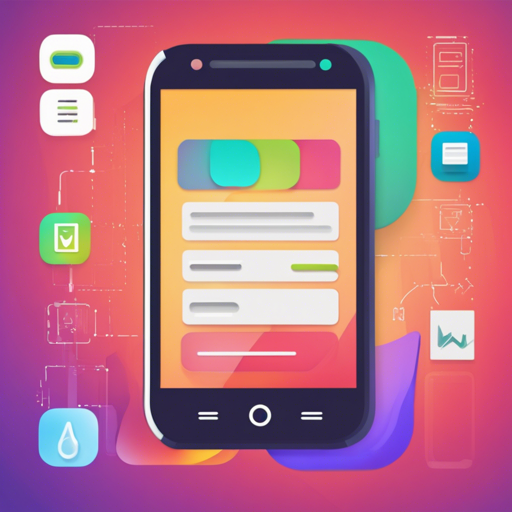Creating an effective and user-friendly interface can significantly enhance the user experience of your application. One such element that can be quite handy is a Holding Button. This component remains visible while the user holds it down, making it particularly useful for functions like audio recording, commonly seen in apps like Telegram and Viber. This guide will walk you through setting up a Holding Button in your Android project.
Getting Started
To get started, you need to first add the Holding Button library as a dependency in your project. You can do this by including the following line in your build.gradle file:
compile 'com.dewarder:holdingbutton:0.1.3'How to Use the Holding Button
Using the Holding Button is straightforward. Follow these steps:
-
Wrap your layout with HoldingButtonLayout:
Encase your layout with the
HoldingButtonLayout, which is a simple FrameLayout. Here’s an example:<com.dewarder.holdinglibrary.HoldingButtonLayout android:id="@+id/input_holder" android:layout_width="match_parent" android:layout_height="wrap_content"> <ImageView android:id="@+id/start_record" android:layout_width="48dp" android:layout_height="match_parent" android:scaleType="center" android:src="@drawable/ic_mic_black_24dp"/> </com.dewarder.holdinglibrary.HoldingButtonLayout> -
Set the holding view property:
Specify the view that will respond to the holding action by setting the
app:hbl_holding_viewproperty. Here’s how:<com.dewarder.holdinglibrary.HoldingButtonLayout android:id="@+id/input_holder" app:hbl_holding_view="@+id/start_record"/> -
Configure the icon:
Set the icon that will appear on the Holding Button using the
app:hbl_iconproperty:<com.dewarder.holdinglibrary.HoldingButtonLayout app:hbl_icon="@drawable/ic_mic_black_24dp"/> -
Listen to events:
Implement an event listener to manage the button’s behavior when the user holds or cancels the action:
mHoldingButtonLayout.addListener(new SimpleHoldingButtonLayoutListener() { @Override public void onOffsetChanged(float offset, boolean isCancel) { mSlideToCancel.setTranslationX(-mHoldingButtonLayout.getWidth() * offset); mSlideToCancel.setAlpha(1 - SLIDE_TO_CANCEL_ALPHA_MULTIPLIER * offset); } }); -
Enjoy!
Once you’ve set everything up, you’re ready to use the Holding Button in your app!
Understanding the Code with an Analogy
Think of the Holding Button as a “magic button” on a remote control for your audio device. When you press it, the audio timer starts, and a visual cue appears, indicating it’s recording. If you hold this button down, it’s akin to a friend holding a door open for you while you go in; the button will remain active as long as you keep holding it. But if you slide too far away — just like a friend stepping back — that recording process will stop. The code snippets help create these interactions seamlessly!
Troubleshooting
If you encounter any issues while integrating the Holding Button, here are a few things to consider:
- Ensure your build.gradle file is correctly configured and synced. Sometimes, a simple sync can resolve many dependency issues.
- Check XML attributes for typos or incorrect resource IDs. These can cause runtime errors that are often overlooked.
- Make sure your icons are available in the drawable folder; otherwise, the button may not display correctly.
- If the button does not respond to holds, verify the implementation of your event listener.
For more insights, updates, or to collaborate on AI development projects, stay connected with fxis.ai.
Further XML Properties
Here are some additional properties you can tweak as per your needs:
- hbl_enabled – Enables or disables the button state.
- hbl_direction – Sets the sliding direction: start (right to left) or end (left to right).
- hbl_cancel_offset – Defines the minimum offset required to trigger a cancel action.
- hbl_color – Customizes the color of the button.
- hbl_radius – Adjusts the button’s corner radius for a rounded effect.
At fxis.ai, we believe that such advancements are crucial for the future of AI, as they enable more comprehensive and effective solutions. Our team is continually exploring new methodologies to push the envelope in artificial intelligence, ensuring that our clients benefit from the latest technological innovations.

